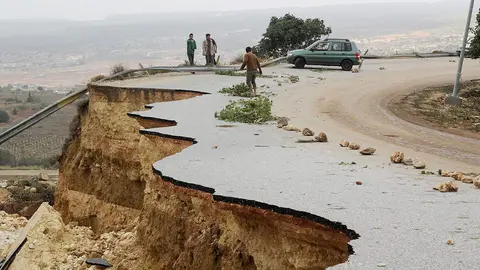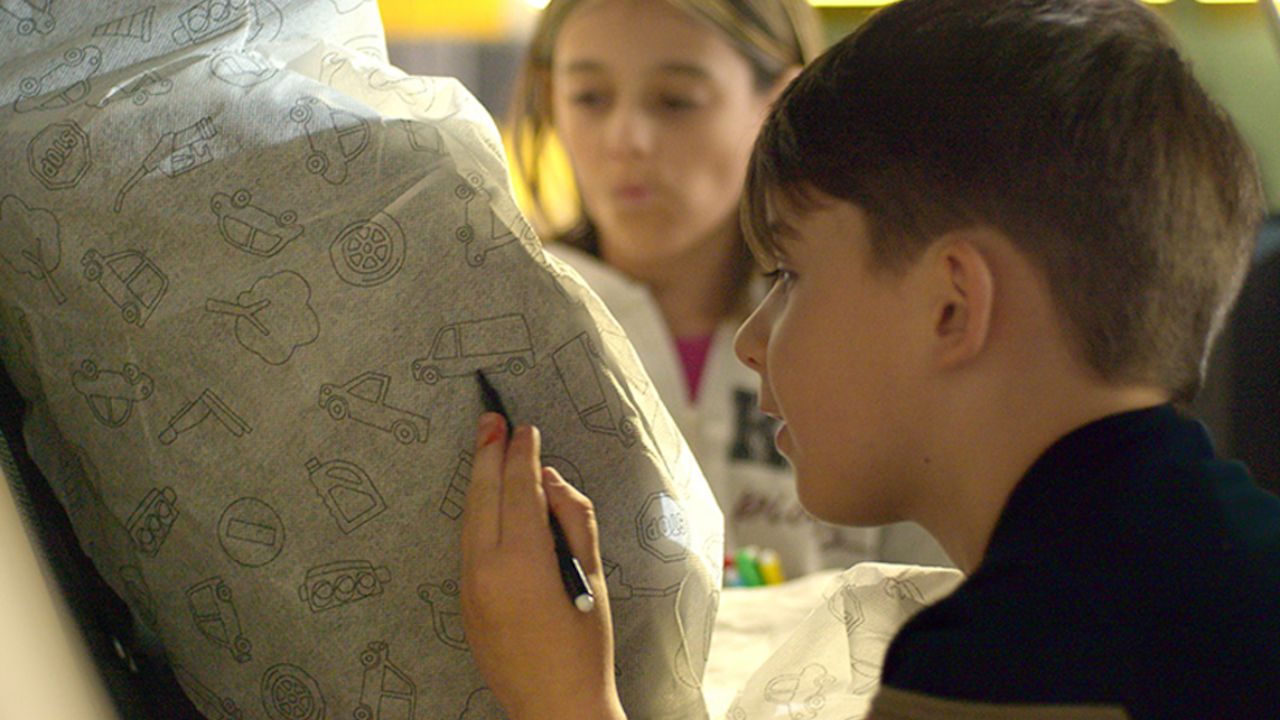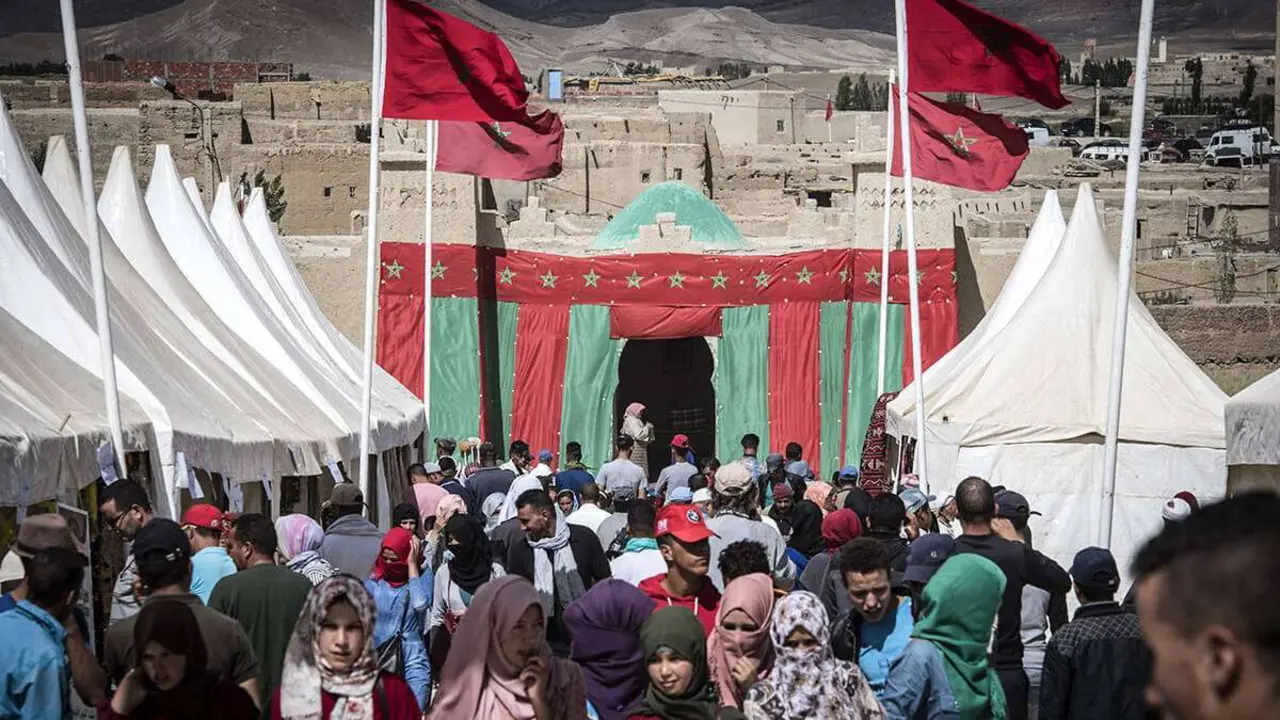Libya: broken lives and children refusing to drink water for fear of drowning

The psychological scars of the Libyans and especially of the thousands of children affected by the floods left in their wake by the storm Daniel in mid-September are surfacing. They are children who have seen their parents, siblings, uncles, aunts, uncles or grandparents die, or simply their relatives have disappeared just as their homes did. Without a trace.
Among other NGOs, Médecins Sans Frontières is already on the ground and has started to work on care activities, focusing mainly on mental health support thanks to a large team of doctors, psychologists and volunteers. One of them is Michel Olivier Lacharité, the organisation's coordinator in Libya, who describes the terror of children traumatised by what they have seen and experienced. He admits that MSF is very concerned because they are finding "many children in eastern Libya who refuse to drink water for fear of drowning".
Just as there are children who do not want to drink for fear of drowning, Olivier reminds us that there are many people who are being forced to drink contaminated water in order to survive. It is their only lifeline. They know it is contaminated, that it can make them sick and even kill them, but they are also aware that they have no other choice if they want to stay alive.

Forced to drink contaminated water to survive
Alvaro Cuadrado, founder of HambreCero.es, has travelled to the epicentre of the catastrophe with a plane full of medical equipment. Once there, he recognises that the biggest problem facing the Libyans now, apart from epidemics, has to do with water. "These are areas that are difficult to access and a large part of the population is drinking contaminated water. That's why we're going to focus our action from now on on on bringing atmospheric water generators to the hard-to-reach regions," where he is convinced it will mean the difference between life and death. What can save them in hard-to-reach areas are these Bluemont generators that transform air into drinking water, acknowledges Álvaro Cuadrado.
Although the geopolitical situation in the country is very complex, HambreCero.es (in collaboration with Libya and Farmaceuticos Solidarios) has managed to charter a plane and is already thinking about the next ones.

Derna, a city in mourning
Derna, the city most affected by the deadly floods in mid-September, has been literally torn in two by the force of nature. The bridge linking the eastern and western parts of the city has completely disappeared. And on 10 September, the force of the water destroyed two dams that swept away everything in a matter of hours. When they burst, the population was sleeping, which explains why there were very few injuries and a very high death toll in Derna.
Most of Derna's inhabitants are in mourning, thousands of people mourning their dead and wandering the streets littered with rubble and upside-down cars. They no longer know where to go or what to do. There is not much to do for the dead, but much to do for the survivors.

Hassan, who lives in Derna, has lost four of his children in the floods. "The water flooded the house while my children were inside with their uncles. And although they kept asking them to come out, my children couldn't. The water started coming in through the windows, they tried to get out through the back, but the water flooded the house on that side too, and when they tried to climb up to the roof my four children and my granddaughter disappeared into the darkness."
Hassan regrets that because he was not at home that night he could do nothing to save them. "I am not only saddened by their death, I am saddened that I left and was unable to fulfil my role as a father, to secure my children's future and prepare them for marriage. With them was also my granddaughter, but the water current took her away," recalls the Derna resident emotionally. "Now I am alone and this is the end. I don't blame God, I blame those responsible for all this". Hassan is not the only Libyan who believes that there are things that have been done wrong in the management of this crisis or in terms of prevention, for example, in the case of the two dams. This is Hassan's heartbreaking testimony, but it could be that of any one of the 150,000 residents of this eastern Libyan city, where everyone has been affected to a greater or lesser extent.
Derna's residents have called for a new field hospital because the two existing hospitals have been turned into makeshift morgues. In this ghost town, there are still thousands of bodies under the rubble, no one is looking for them anymore, and just as many are washed back to the sea every day. In fact, the rescue teams recognise that the current could continue to carry bodies to the coast for several weeks.

Eastern Libya is a maze of debris littered with broken lives
According to initial assessments by a Libyan technical committee, a quarter of Derna - some 90 hectares - has been completely devastated. And with roads into the city collapsed by water, mud and debris, humanitarian aid is arriving in dribs and drabs. And people are collapsing every day as they see their homeland turned into an impassable maze of rubble.
It is like a dream, says another Derna resident. "A dream we still can't understand," admits Ayyad. His story is repeated over and over again across the length and breadth of this completely razed city. "I was going to sleep when my daughter got up, looked out of the window and saw that the floor below was flooded with water. Then she woke us all up and we went up to the roof. I locked the door again because the water was flooding everywhere".
Still in shock, Ayyad says he let his children go upstairs and tried to close the door, but it burst open and water poured into one of the bedrooms, filling the room and covering him almost entirely. "I survived by the grace of God, for almost half an hour I could barely breathe. The water was up to my neck. I thought I was going to die," he recalls nervously.

The disheartening before and after storm Daniel
Thousands of people have been affected by the devastating storm Daniel, and the satellite images from Libya are chilling. The before and after is heartbreaking, a stark picture of devastation and a true testament to the power of nature. The Mediterranean that washes Libya's shores is no longer blue, but as brown as the mud that floods hectares and hectares of houses inland.
That the world does not forget Libya is key for a population that has lost everything and will unfortunately remain in shock for a long time to come.









